CAN South Asia Quarterly Newsletter for July – September 2024

Dear Friends,
We are thrilled to share some exciting updates this quarter!
At our regional meeting in Colombo (10-11 September), we focused on youth engagement, preparing for COP29, and reviewing CANSA’s 2023-2030 strategy. Key discussions addressed climate finance, loss and damage, and urban resilience, with case studies from Nepal and India showcasing practical solutions to climate challenges. The event highlighted the importance of inclusivity, gender balance, and youth empowerment across South Asia.
In mid-August, I had the opportunity to speak at the HSBC Just Energy Transition event in Sri Lanka, where I highlighted the critical need for a global fossil fuel phase-out. I emphasized the Fossil Fuel Non-Proliferation Treaty as a vital policy instrument to accelerate this transition and ensure a more sustainable future.
During the Global Week of Climate Action (September 13-20, 2024), CANSA launched its YouTube channel with a short film on the devastating impact of heatwaves on South Asian cities, underscoring the urgent need for climate finance. The week saw activists mobilize to demand an end to fossil fuel expansion and a fair, funded energy transition.
We’re also happy to announce the revamped CANSA website, now more user-friendly and mobile-compatible. This upgrade aligns with our new thematic focus and will help us communicate our climate advocacy better—thanks to your feedback!
We are happy to share some stories from SDPI, Pakistan, and The Liaison Office, Afghanistan.
Finally, we’re excited to welcome the NSC of CANSA Afghanistan, with Ezattullah Sediqi as Chair and Ajmal Shirzai as Co-Chair. Let’s continue amplifying each other’s work—please send us your success stories to share!
Best regards,
Sanjay Vashist
Director, CANSA
REGIONAL MEETING
Capacity building to influence national policies including NDC 3.0 and setting expectations for COP29
10-11 September 2024
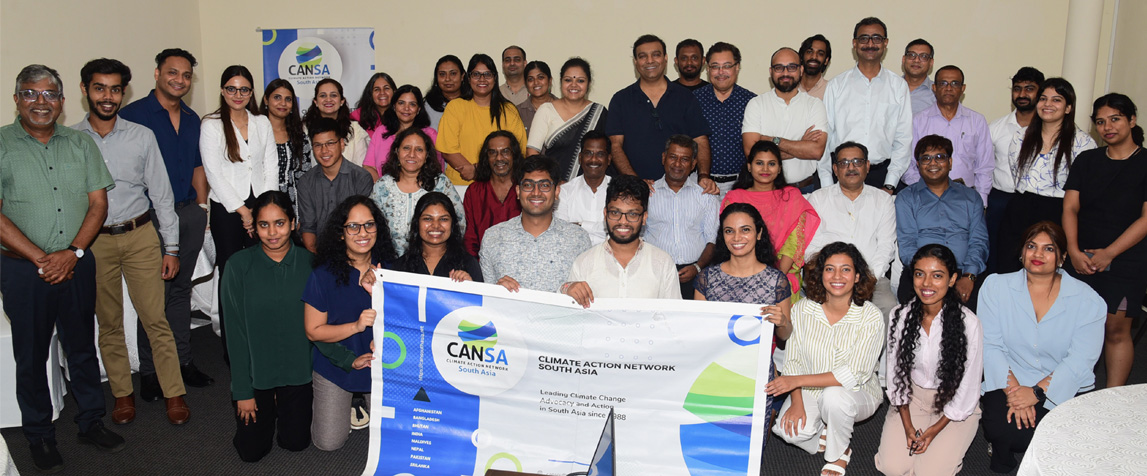
The regional meeting in Colombo, Sri Lanka (10-11 September 2024) focused on strengthening youth engagement in climate change, preparing for COP29, and reviewing CANSA’s 2023-2030 strategy. Key discussions centered on climate finance, loss and damage, regional cooperation, and empowering youth in shaping national policies, particularly Nationally Determined Contributions (NDCs).
Sessions on urban resilience highlighted South Asia’s vulnerability to climate impacts, stressing the need for adaptation-focused actions in cities like Delhi and Karachi. Case studies from Nepal and Kolkata showcased local climate challenges and solutions, with discussions on sustainable consumption underscoring the need for a circular economy.
A session on water security in the Himalayan Basin emphasized the need for regional cooperation, while the Fossil Fuel Non-Proliferation Treaty highlighted the urgency of transitioning away from fossil fuels. Discussions on climate finance exposed the vast gap between the $100 billion goal and actual needs, with calls for more equitable funding mechanisms.
The event emphasized inclusivity, gender balance, and practical climate actions, focusing on empowering civil society and youth while promoting collaboration across South Asia to address pressing climate issues.
Navigating the Net Zero Transition
Integrating Policy, Economy and Finance in Sri Lanka’s Journey
HSBC Event on Just Energy Transition in Sri Lanka
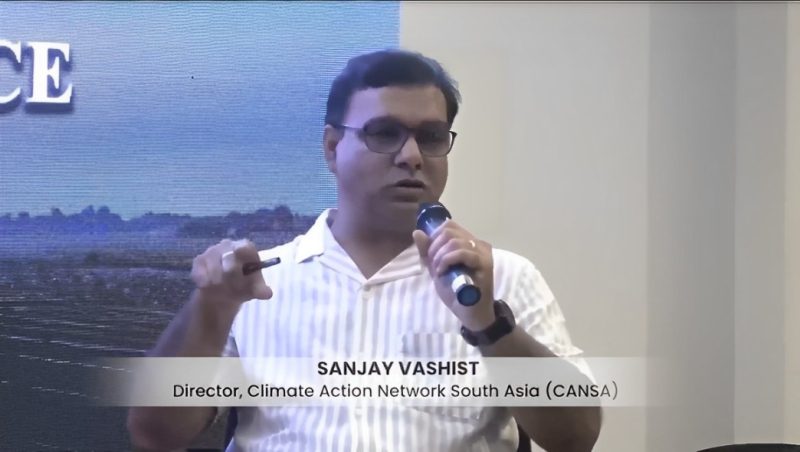
At the HSBC Just Transition event, Sanjay Vashist, Director of CANSA, emphasized the urgent need for a Fossil Fuel Non-Proliferation Treaty. He argued that the Paris Agreement, focusing solely on mitigation and adaptation, is insufficient. With rising global temperatures, including heatwaves touching 50°C, adaptation alone will not suffice, leading to inevitable loss and damage. He stressed the necessity of phasing out fossil fuels immediately, calling for global policy decisions to drive this change. He highlighted the treaty’s growing support, endorsed by over 1 million people, 13 countries, and 113 cities, advocating for a rapid shift to renewable energy and stricter global monitoring of fossil fuel commitments.
Media Fellowships on Non-Economic Loss and Damage (NELD) for Nepal and Sri Lanka
CANSA is partnering with Nepal Investigative Multimedia Journalism Network (NIMJN), and Sri Lanka’s The Center for Investigative Reporting (CIR) to initiate the NIMJN-CANSA and CIR-CANSA Fellowships for journalists, researchers, and scholars to explore Non-Economic Loss and Damage (NELD) caused by extreme weather and slow-onset events. NELD includes harm to health, cultural heritage, biodiversity, and more. The fellowship aims to highlight NELD’s role in climate justice and adaptation planning.
Two fellowships, starting October 1, 2024, will run for four months. Fellows will produce at least two stories, using data, reports, and multimedia. Selected works will be published by NIMJN, CIR, CANSA, and media partners. Watch the space on our website for the stories in the next few months.
Climate Resilience for Dhulikhel Municipality
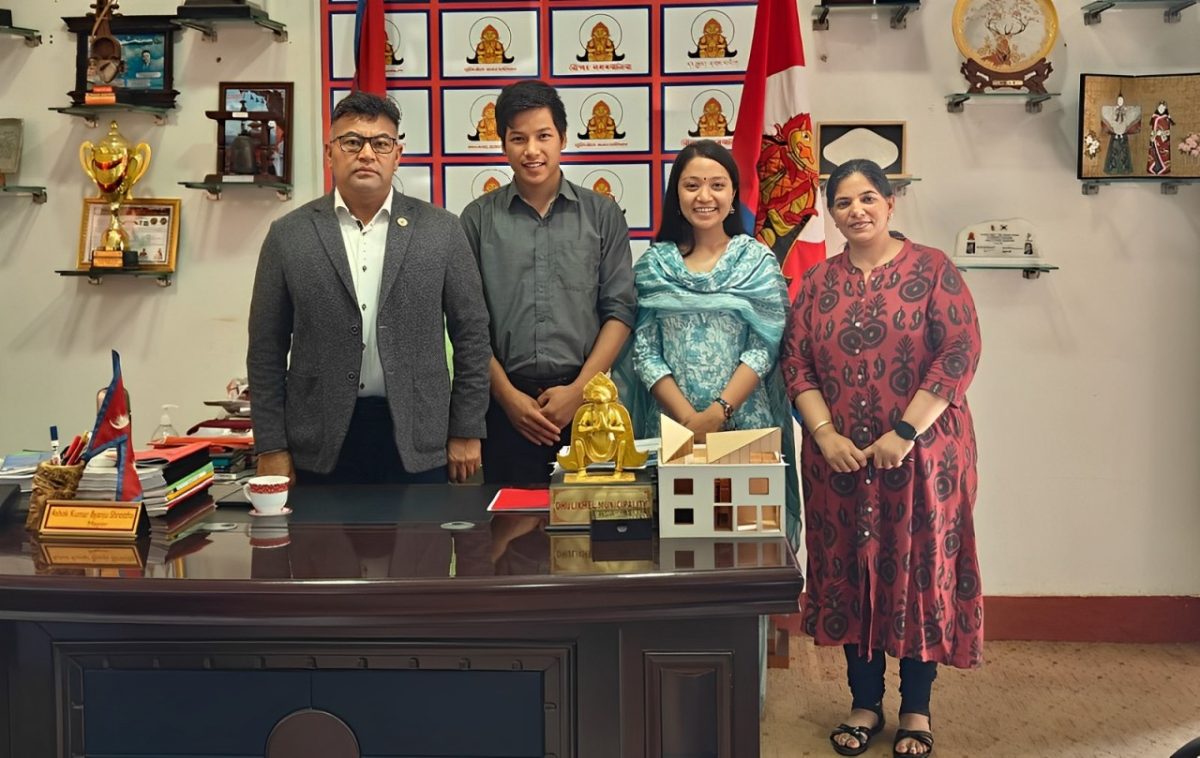
CANSA and Clean Energy Nepal (CEN) team comprising Ruchi Chaudhary of CANSA, Shreya K.C. and Prakash Lama of Clean Energy Nepal, met the Mayor of Dhulikhel, Mr. Ashok Kumar Byanju, on 10th July 2024. They shared the work of CEN and CANSA in promoting ‘Green Resilient and Inclusive Cities’ in Nepal and South Asia and to learn about the current initiatives, upcoming plans, and priorities of the municipality. They also discussed collaboration potential for future action on climate resilience as anticipated by the municipality.
LAUNCHED
CANSA’s YouTube Channel & New Film on Heatwaves
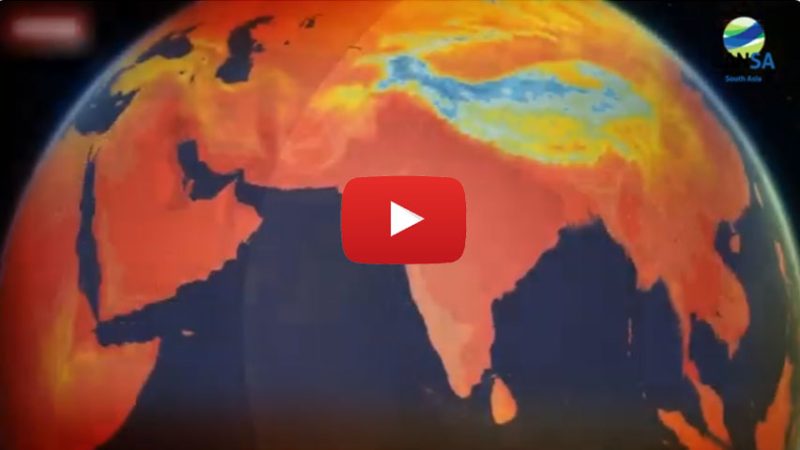
CANSA launched its YouTube channel with the short film on heatwaves titled: Scorching Reality: South Asia’s Heatwave Crisis (youtube.com)
The film dives into the impacts of heatwaves in our cities, ecosystems, and vulnerable communities, and calls for urgent climate action and a powerful call for climate justice.
If you haven’t watched it yet, please do. Also share it widely with your members, networks, and across social media. If possible, do screen it in schools and community groups to raise awareness. And also subscribe to the YouTube channel for this and more films on the impacts of climate change in South Asian cities and solutions thereof.
REVAMPED
CANSA Website – Have You Seen it?
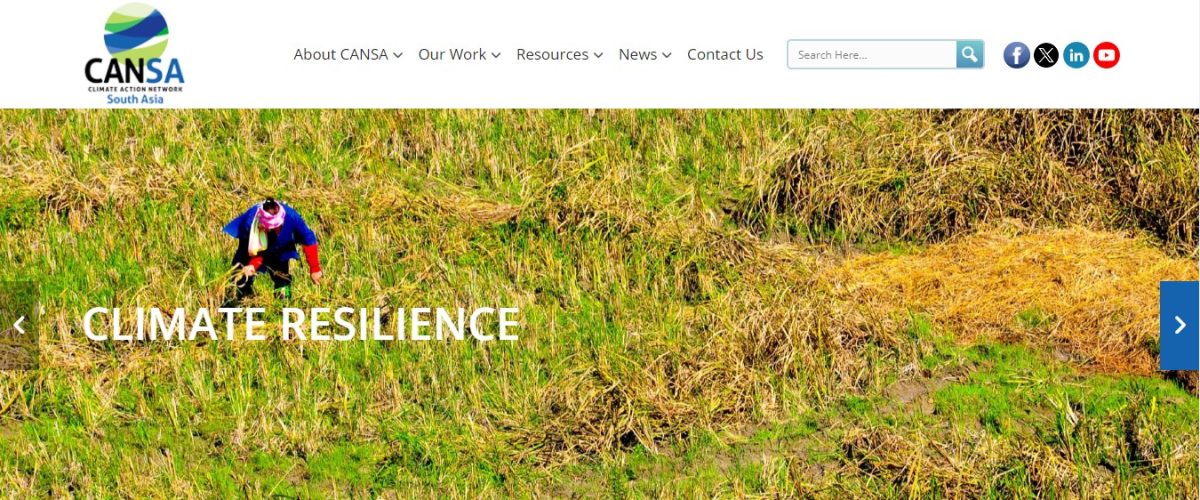
This quarter, CANSA revamped its website to improve usability, align content with six key thematic areas—Loss and Damage, Just Transition, Climate Finance, Ecosystem Restoration, Climate Resilience, and Multilateral Negotiations—and enhance mobile compatibility. The redesign features dedicated sections for each theme, improved content management, better search functionality, and a modernized, user-friendly interface. Key updates include a dynamic homepage, optimized publications, updated membership and staff sections, and a new “Activities” section for events and webinars. The revamped site aims to better communicate CANSA’s climate advocacy work and engage a broader audience. It’s your feedback that helped make CANSA’s website better. Do visit regularly and share among all members.
GLOBAL WEEK OF ACTION
for Climate Finance and a Fossil-Free Future 13-20 September 2024
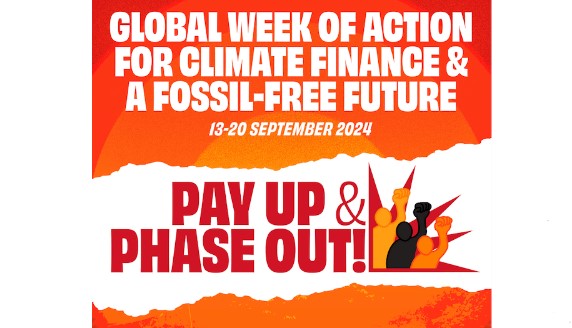
During the Global Week of Action for Climate Finance and a Fossil-Free Future (September 13-20, 2024), climate advocates mobilized to demand urgent action from Global North governments. The week, organized by the Global Fight to End Fossil Fuels and the #PayUp Climate Finance Campaign, featured online and offline events. Activists called for an end to fossil fuel expansion, full climate finance commitments, and a fast, fair, feminist, and funded energy transition. The actions, coinciding with key global summits, highlighted the failures in meeting climate finance goals and the need for real commitments to achieve a just and equitable transition.
CANSA launched its short film on heatwaves, and the desperate need for climate finance to tide over the devastating effect of heatwaves and other climate-related disasters on South Asian cities, during the Global Week of Climate Action.
Global Week of Climate Action in Nepal: Urging Global North countries to pay for climate finance.

Nepal participated in huge numbers with a march from Jawalakhel to Pimbahal Pokhari demanding action – public-sourced grants, timely and adequate climate finance for mitigation, adaptation, loss and damage, and just transition. Also that the funds must be transparent and must prioritize community-led efforts.
ANNOUNCING
CANSA Afghanistan’s National Steering Committee (NSC)
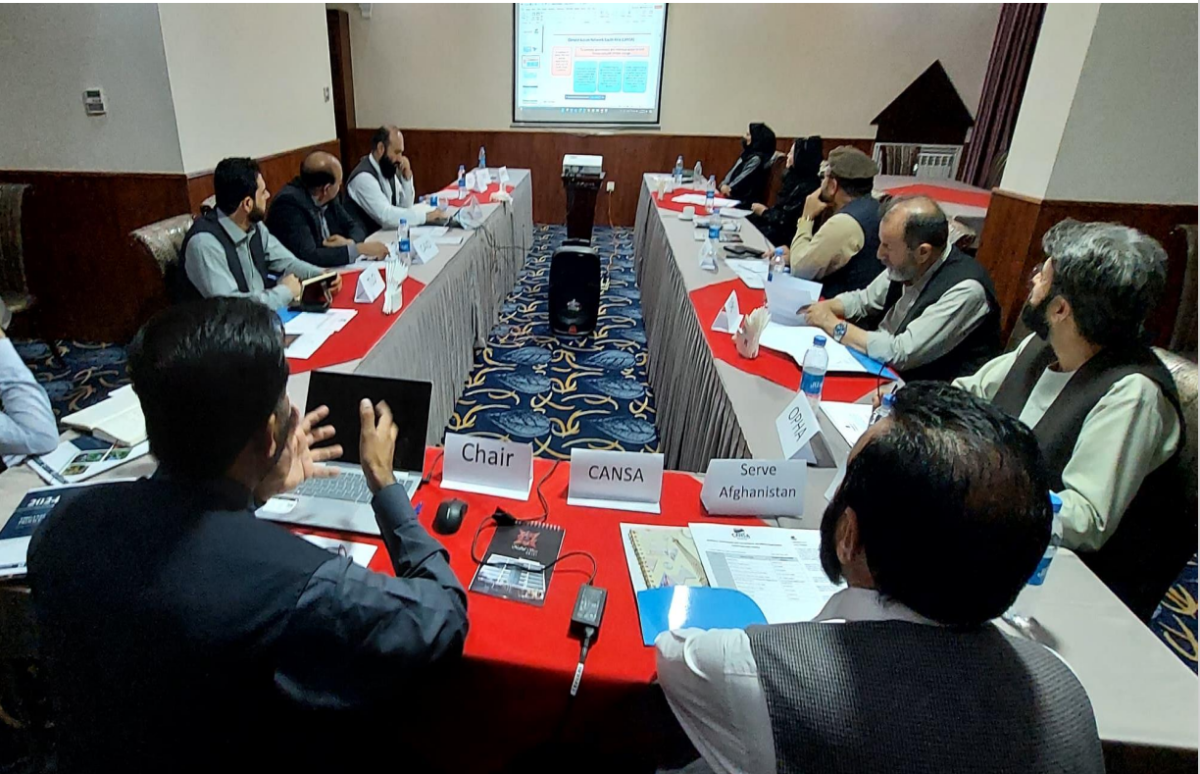
CANSA members in Afghanistan held a meeting on 16 September to formulate its National Steering Committee (NSC). The Chair, Co-Chair, and new members are as follows:
Ezattullah Sediqi, Chair, Resilience, Emergency and Humanitarian Aid (REHA)
Ajmal Shirzai, Co-Chair, Future Generations Afghanistan (FGA)
Besmillah Sakhizadah & Niamatullah Rahimi – Future Generations Afghanistan (FGA)
Ahmed Rahim Khostai & Shoaib Sadaat – The Liaison Office (TLO)
Dr. Juma Khan Nasir Khairzada – Solidarity For Afghan Family (SAF)
Mohammad Yusuf Hamidian – Resilience, Emergency and Humanitarian Aid (REHA)
Eng. Tahir Khalili & Gul Ahmad Jan – Future Generations Empowerment Organization (FGEO)
Zabihullah Ghazawi & Jawad Darwish – Community Action for Healing Poverty Organization (CAHPO)
Eng. Saber Alimi & Masood Mahzoon – Serve – Afghanistan
Hearty congratulations to the new NSC members. We wish them the very best.
BLOGS
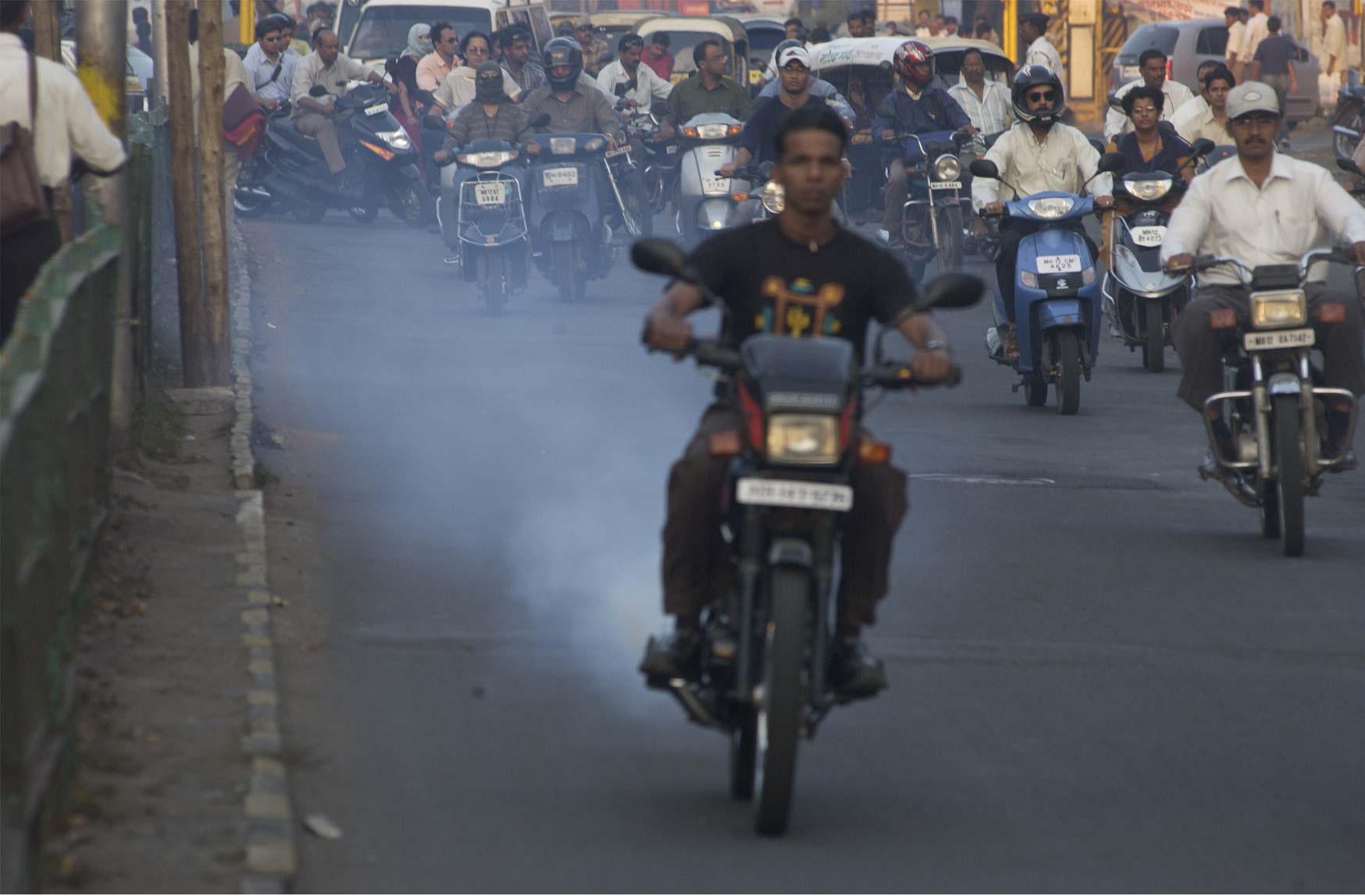
The Fight for Clean Air in South Asia: A Health Crisis on the Rise
The urgency to address the growing air pollution crisis in South Asia has never been clearer. Air Pollution, especially its bustling cities, has reached alarming levels, with children being the most vulnerable victims. Air pollution is not just an environmental issue; it’s a public health crisis that is claiming lives, stunting growth, and exacerbating inequalities across the region. Read blog here.
CANSA Annual Regional Meeting 2024: Empowering Youth Voices in Climate Action
The CANSA Annual Regional Meeting, in Colombo, Sri Lanka, was a defining moment for climate action in South Asia. Delegates from across South Asia including civil society organizations (CSOs), board members of CANSA, and, an inspiring number of youth leaders gathered for the climate change workshop. The CANSA Colombo Strategy formulated last year in Sri Lanka, was reviewed. Read blog here
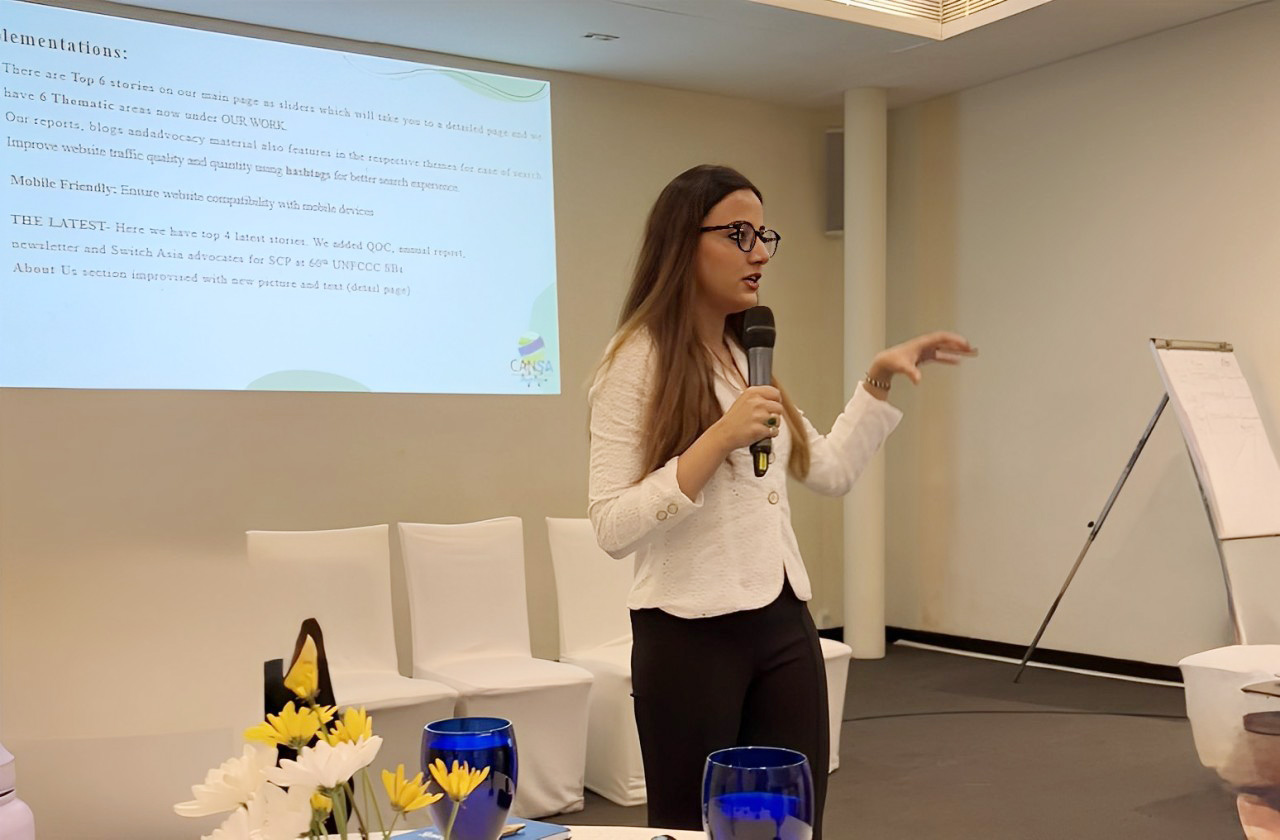
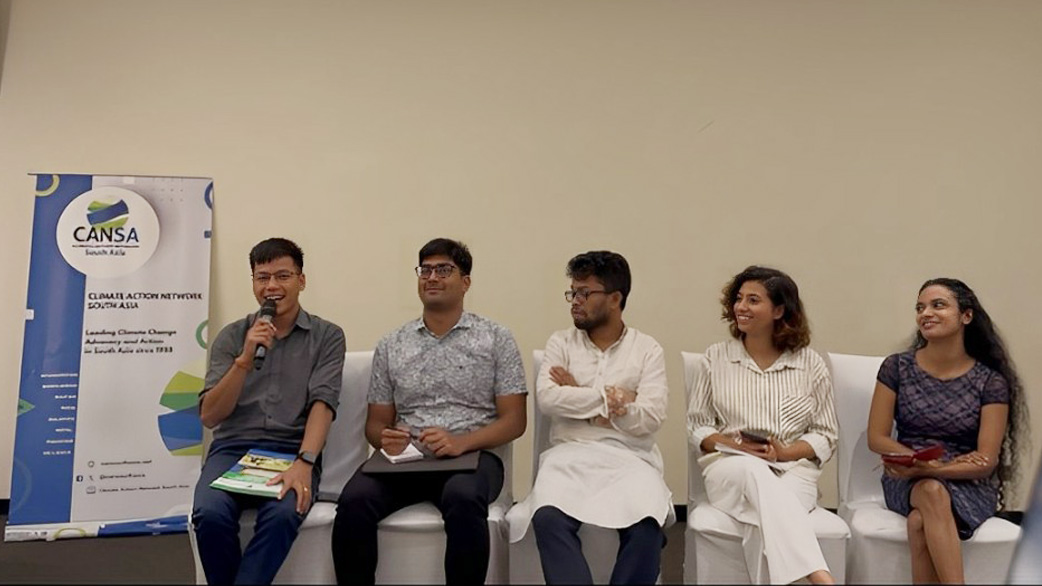
Meet Prakash Lama – Inspiring Youth Climate Activist at the CANSA Annual Regional Meeting in Colombo
Prakash Lama’s Climate Activism began in 2018-19 when he transitioned from a youth activist to a climate advocate. Studying environmental science was an eye-opener. He joined the Nepalese Youth for Climate Action (NYCA), where he began to actively engage in climate discussions and activism. Read blog here
Meet Achintya Ghosal: Inspiring Youth Climate Activist at the CANSA Annual Regional Meeting in Colombo
Achintya Ghosal’s path to climate advocacy was unusual. A former competitive swimmer for Team India, Achintya’s interest in climate issues was sparked by Yuval Harari’s book Sapiens during the COVID-19 pandemic, which catalysed his shift from sports to climate activism. Read blog here
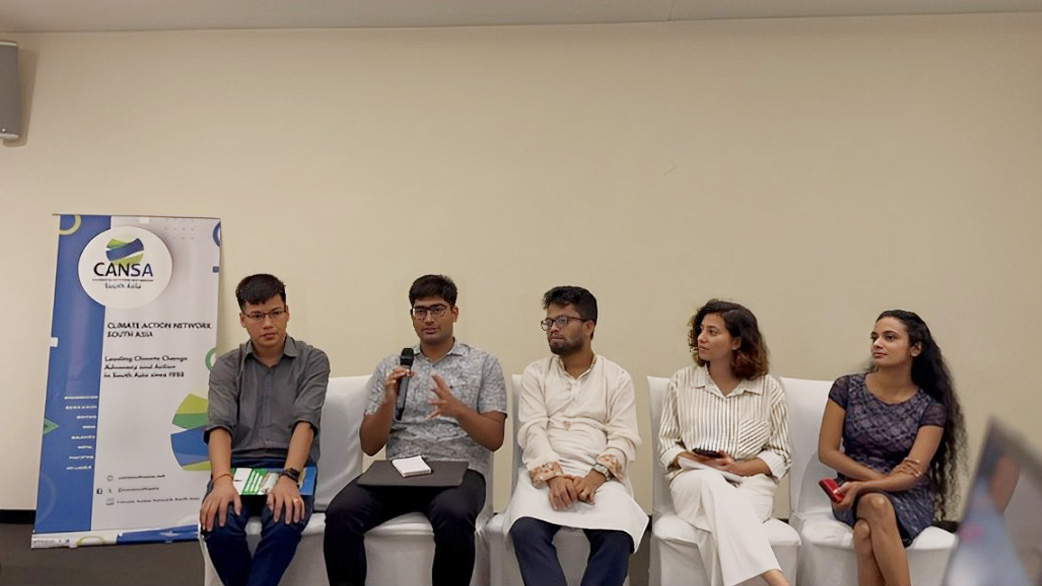
CANSA IN THE NEWS
Kerala should not sacrifice its ecosystem for weekend motorists
Deccan Herald | September 14, 2024
Economic costs of climate change in India and policy responses
energy.economictimes.indiatimes.com | July 17, 2024
India: Extreme weather fuels migration-related challenges
dw.com | July 10, 2024
Heat Waves Across Asia Stoke Health Concerns, Food Security Fears
capitalfm.co.ke | July 08, 2024
Heat waves across Asia stoke health concerns, food security fears
chinadaily.com.cn | July 08, 2024
Living in the Age of Global Warming
Good Morning Kashmir | July 04, 2024
Dr Abid Suleri Appointed As Member To NSPP Board Of Governors
Urdupoint.com | July 02, 2024
MEMBER ACTIVITY IN SPOTLIGHT
A Busy Quarter for The Sustainable Development Policy Institute (SDPI)

Executive Director, Sustainable Development Policy Institute (SDPI), Dr Abid Qaiyum Suleri has been nominated as member of the prestigious COP29 international advisory committee, the only South Asian expert, to assist the chair on the global environmental moot’s negotiation agenda.
Azerbaijan Minister for Ecology and Natural Resources, President-Designate COP-29, Mukhtar Babayev, addressed the SDPI seminar “Building Climate Consensus for COP29: The Road to Baku” in Islamabad. He said the COP29 meeting in Baku would unveil an all-inclusive forum for all countries to debate on pressing climate issues including adaptation plans and biennial transparency report (BTR) for concerted mitigation efforts.


SDPI jointly held a symposium, “Driving the Change: The Dynamic Role of Pakistan’s Youth and Civil Society in Climate Resilience”, in collaboration with the Prime Minister’s Youth Programme (PMYP) and the Ministry of Climate Change and Environmental Coordination at the Pakistan Institute of Parliamentary Studies (PIPS). Secretary General Commonwealth, Patricia Scotland was chief guest. Dr Abid Suleri stressed that Carbon Border Adjustment Mechanism (CBAM) policies will challenge Pakistan’s exporters by requiring carbon emissions accountability for their products.
Executive Director of SDPI Dr Abid Suleri participated in the first meeting of the Prime Minister’s Committee on the 29th session of the Conference of Parties (COP29).


On 23 September 2024, SDPI Deputy Executive Director Dr. Shafqat Munir was a key speaker at the event organized by the National Disaster Management Authority (NDMA) in Islamabad. The discussion emphasized Pakistan’s vulnerability to disasters, worsened by aging infrastructure, overused utilities, overburdened systems, and failure to retire assets, causing extensive damage from earthquakes, floods, droughts, and landslides.
Activities from The Liaison Office (TLO), Afghanistan
Engaging Communities in Nature Conservation: A Radio Round Table Discussion

The Liaison Office (TLO) took a significant step toward raising awareness about environmental protection by organizing a highly impactful radio round table discussion to celebrate World Nature Conservation Day on July 28. The event brought together a diverse panel, including an environmental activist, a religious scholar, and an expert in environmental conservation, each offering unique perspectives on the role of the community in safeguarding nature. The experts discussed the practical steps communities can take to protect natural resources, offering actionable advice and sustainable practices.
TLO Observer NGO at UNFCCC in COP29
TLO has been accepted as an observer NGO at the United Nations Framework Convention on Climate Change (UNFCCC). TLO will participate in COP29, advocating for Afghanistan’s climate concerns. TLO will try to amplify the climate voices of Afghan communities and CSOs and ensure their concerns are heard on the international stage.





